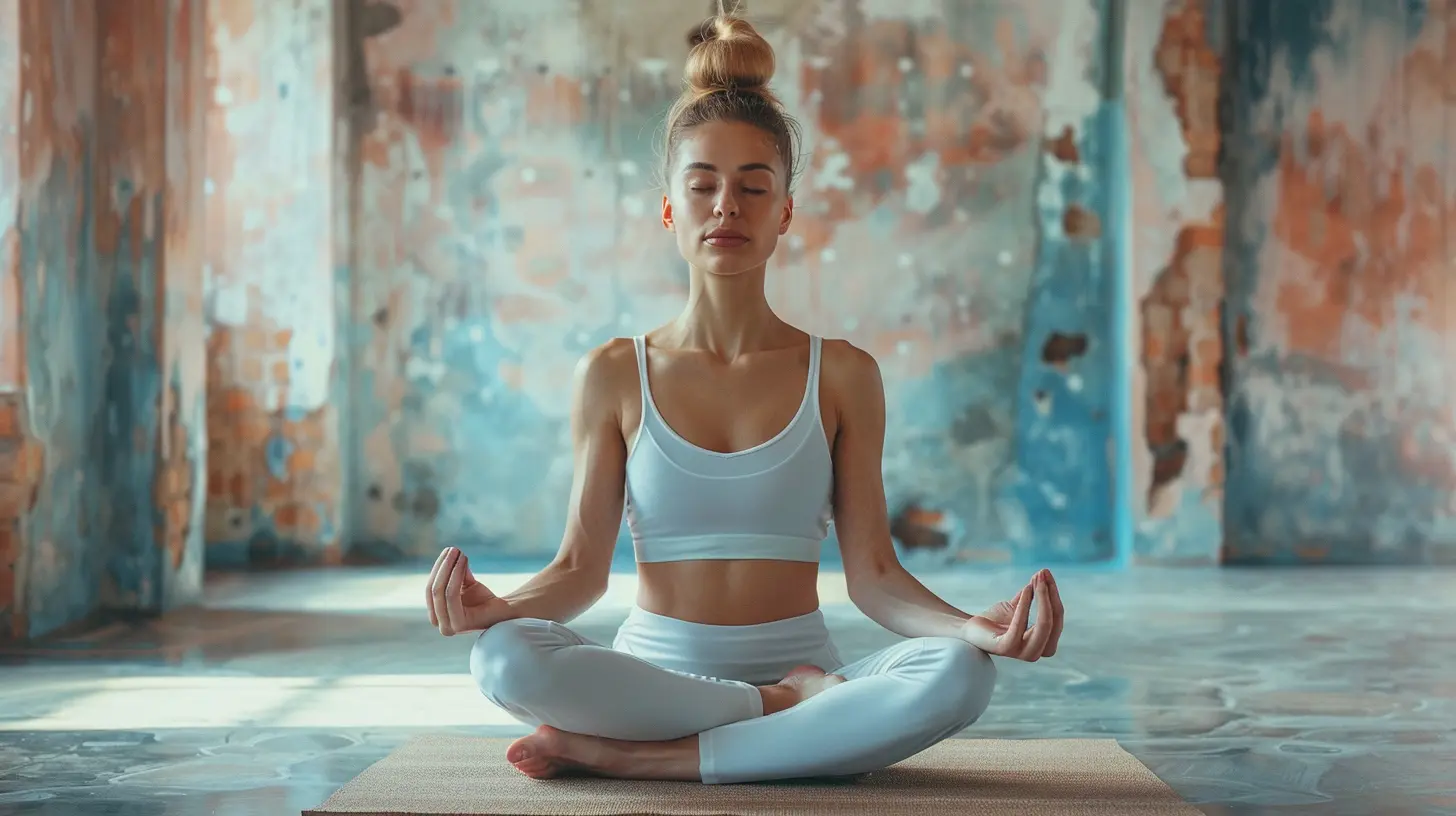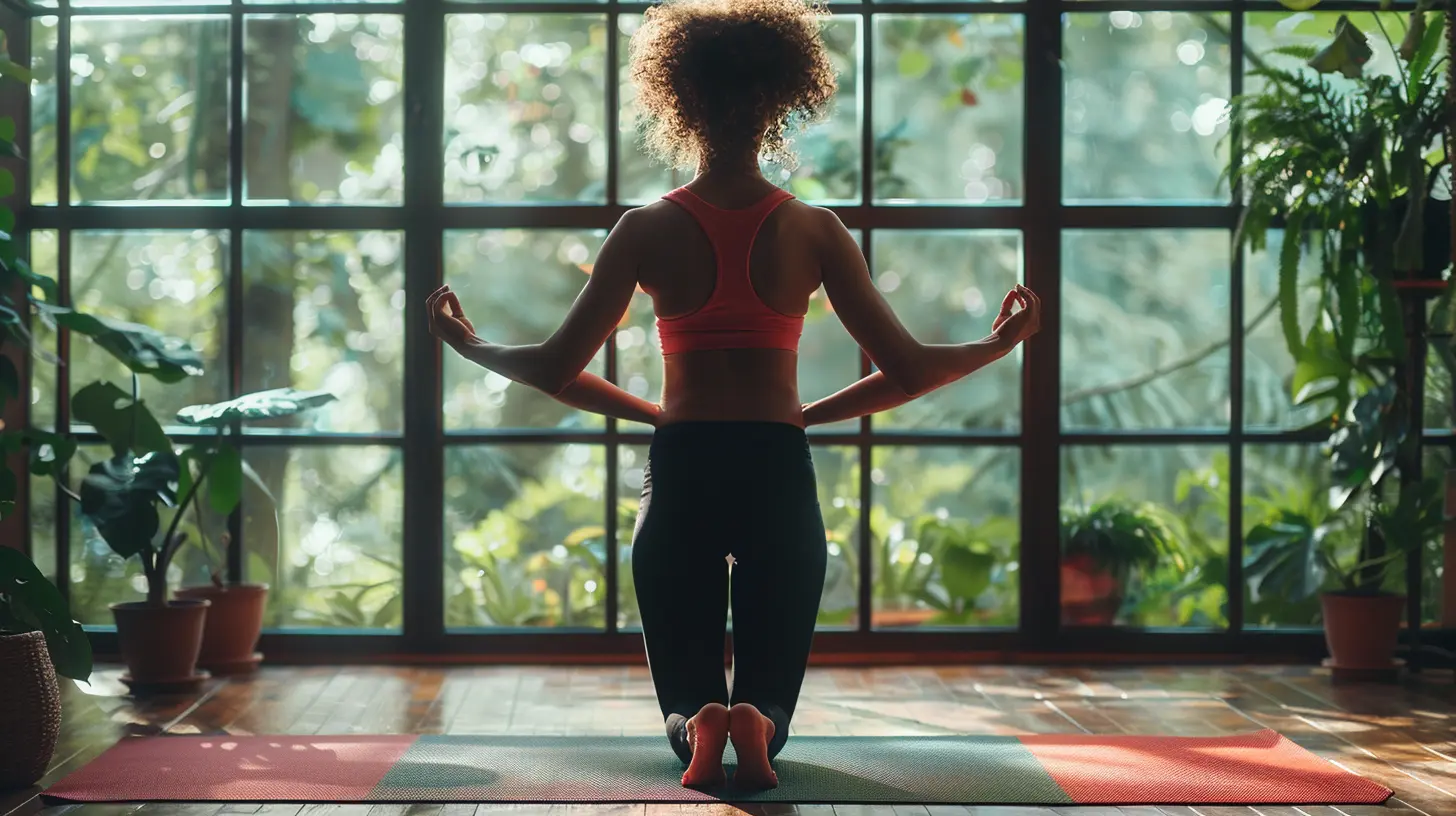18 January 2025
Let me ask you something: when was the last time you felt truly present? I mean, fully there in the moment, not worrying about the past or obsessing over the future? If you’re like most of us, it’s been a while. That, my friend, is where mindfulness steps in. And guess what? Yoga is one of the best ways to cultivate it in your daily life.
If you’re here, chances are you’ve heard about mindfulness and yoga being a “match made in heaven,” but maybe you’re still not sure how it all works or how it can benefit you. Don’t worry—I’ve got your back! In this article, we’re breaking down the connection between yoga and mindfulness, how you can start practicing mindfulness through yoga, and why this combo might just change your life. Let’s dive in! 
What Is Mindfulness Anyway?
Mindfulness is more than just a fancy buzzword you hear people tossing around. At its core, mindfulness means being fully present—aware of where you are and what you’re doing, without being overly reactive or overwhelmed by what’s going on around you.Think of it as hitting the "pause" button on the nonstop chatter in your brain. Instead of running on autopilot, mindfulness encourages you to actually experience life—whether it's savoring the taste of your morning coffee, feeling the sun on your skin, or even tackling a challenging yoga pose.
The best part? You don’t need a special gadget or app to tap into mindfulness. But yoga, as it turns out, is one of the easiest and most effective ways to bring it into your life.
Yoga: The Perfect Gateway to Mindfulness
Why yoga, you ask? Because yoga is all about connecting your body, mind, and breath.Yoga is more than just physical postures (although those downward-facing dogs are pretty amazing). Each movement, stretch, and breath in yoga encourages you to focus inward. It’s like giving your brain a mini-vacation from the chaotic outside world.
When you're holding a yoga pose, balancing on one leg, or flowing through a sequence, you’re forced to concentrate. You’re not thinking about your emails, your messy to-do list, or what’s for dinner. You’re in the here and now. 
The Science Behind Yoga and Mindfulness
Before we get into the how-tos, let’s talk a little science (don’t worry, I’m keeping it simple).Studies have shown that yoga can directly impact your brain. Regular practice can shrink the amygdala (the part of your brain responsible for stress and emotions) while strengthening the prefrontal cortex (the area in charge of decision-making and focus). The result? You’re less stressed and more present.
On top of that, yoga helps slow down your breathing, lowers your heart rate, and reduces the production of stress hormones like cortisol. All of this creates the ideal environment for mindfulness to flourish.
So, it’s not just all about stretching and flexibility. Yoga literally rewires your brain to support mindfulness. Pretty cool, right? 
How Yoga Helps You Cultivate Mindfulness
Now, let’s get into the juicy stuff—how yoga can help you become more mindful, step by step.1. Mindful Breathing (Pranayama)
Let me tell you, breathing is way more powerful than we give it credit for. Yoga incorporates pranayama—or controlled breathing exercises—that are practically the gateway drug to mindfulness.When you slow down and focus on your breath, it’s like hitting the reset button for your brain. Try this next time you’re on your yoga mat:
- Inhale deeply for a count of 4.
- Hold your breath for a count of 4.
- Exhale slowly for a count of 6.
Do this for a few rounds, and I promise you’ll feel more grounded and centered almost instantly.
And here’s the kicker—focusing on your breath doesn’t just help during yoga. You can use it anytime, anywhere. Stuck in traffic? Breathe. Feeling overwhelmed at work? Breathe.
2. Being Present in Your Movements
Yoga teaches you to slow down and pay attention to your body. Every stretch, twist, and pose requires you to focus on what you’re doing in that exact moment.When you’re in Warrior II, you’re not just standing there—you’re tuning in to how your feet connect with the mat, how your arms are aligned, and even how your breath flows through your body.
This kind of focused attention spills over into daily life. Suddenly, you find yourself paying more attention to the small things, like the way your coffee smells in the morning or the sound of birds chirping outside your window.
3. Letting Go of Judgment
Here’s a truth bomb: yoga teaches us to be okay with not being perfect.You might fall out of Tree Pose or feel stiff in your forward fold—and that’s totally fine. Yoga encourages you to let go of judgment and embrace where you are today, without comparing yourself to anyone else.
This mindset is a huge part of mindfulness. It’s about accepting yourself as you are, flaws and all. Think of it as giving yourself a big, internal high-five.
4. The Magic of Savasana
Ah, savasana—the part of yoga where you get to just lie down and relax. But don’t let its simplicity fool you. Savasana is a masterclass in mindfulness.During savasana, you’re encouraged to be fully still and present. There’s no agenda—just you, your breath, and the moment. This practice of quiet awareness can be surprisingly refreshing.
Savasana shows us that mindfulness doesn’t have to be complicated. Sometimes, just being is enough.
How to Start Your Mindfulness Yoga Practice
Ready to dive into mindfulness through yoga? Here are a few tips to get started:1. Choose the Right Style of Yoga
Not all yoga styles are created equal when it comes to mindfulness. If you’re new to yoga or looking to focus on mindfulness, try styles like Hatha, Yin, or Restorative Yoga. These slower-paced practices allow more time for reflection and awareness.2. Create a Dedicated Space
Find a quiet, uncluttered spot to practice. Bonus points if you can add some calming touches—like a candle, soft lighting, or soothing music.3. Start Small
You don’t need to commit to a 90-minute class right off the bat. Even 10-15 minutes of mindful yoga can make a big difference.4. Set an Intention
Before you start, take a moment to set an intention for your practice. It could be something simple like “I want to be present” or “I want to let go of stress.”The Benefits of Combining Yoga and Mindfulness
What’s in it for you? A lot, actually. Here are some of the biggest benefits you can expect when you cultivate mindfulness through yoga:- Reduced Stress: Yoga and mindfulness work together to calm your mind and lower stress levels.
- Improved Focus: By staying present on the mat, you’ll notice better concentration off the mat too.
- Enhanced Emotional Resilience: Learning to breathe through discomfort in yoga can help you handle life’s ups and downs with more grace.
- Better Sleep: Goodbye, restless nights. Mindful yoga helps quiet your mind so you can sleep like a baby.
- Deeper Connection to Yourself: Yoga helps you tune in to your body and emotions, so you can better understand and care for yourself.
Wrapping It Up
Cultivating mindfulness through yoga isn’t about doing the perfect pose or meditating for hours on end. It’s about showing up—on your mat and in your life—and learning to be fully present, one breath at a time.Whether you’re brand-new to yoga or a seasoned yogi, incorporating mindfulness into your practice can help you feel more grounded, focused, and at peace. So roll out your mat, take a deep breath, and give it a try—you might just be surprised at how much it transforms your life.








Oliver Carrillo
Great article! I appreciate how you highlight the link between mindfulness and yoga. Incorporating simple breathing techniques can enhance focus and deepen practice. Looking forward to exploring more ways to integrate mindfulness into daily routines!
April 3, 2025 at 2:48 AM